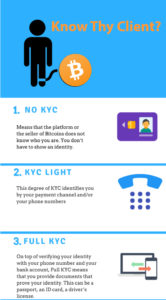Stifling blockchain innovation in the US
Two financial regulators recently voiced that Congress may need to grant them new powers if they are to protect consumers from fraud on cryptocurrency exchanges, the digital trading platforms where buyers trade US Dollars for bitcoin or other virtual currencies. Asked by federal lawmakers whether they had enough authority to shield cryptocurrency buyers from scams, market manipulation and abuse, officials from the Securities and Exchange Commission and the Commodity Futures Trading Commission said that the agencies were still consulting with other U.S. officials but that they may need more legislative authority.
During a hearing of the Subcommittee on Capital Markets, Securities, and Investment titled “Examining the Cryptocurrencies and ICO Markets” on March 14th, 2018, Carolyn Maloney asserted that “a lot of average people are pouring their life savings into cryptocurrencies”. It seems doubtful that the 72-year old congresswoman has either bought cryptocurrencies or met many people who have traded in them – not to speak of participation in and initial coin offering at this point. “Regular people” in the United States are mostly limited to very limited purchasing tools – such as Coinbase – which only offers three currencies to-date.
One must assume that most officials have not read the findings published in the 2018 Joint Economic of the Joint Economic Committee Congress of the United States. The documents reports, that “Bitcoin started 2017 at a price just under $1,000 per bitcoin and finished well over $12,500 per bitcoin, an appreciation of over 1,100 percent. During that period, Bitcoin topped out over $19,000 per bitcoin. The second largest cryptocurrency, Ethereum, did even better. At the beginning of 2017, ether (Ethereum’s currency) was worth under $10. By the end of 2017, ether shot up to over $719, an astronomical appreciation of 6,713 percent.” A very good investment for any buyer indeed.
More enlightened participants at the hearing included Dr. Chris Brummer, Professor of Law at Georgetown University Law Center; Mike Lempres, chief legal and risk officer at Coinbase; Peter Van Valkenburgh, the director of research at Coin Center, and Robert Rosenblum a partner at the Silicon Valley law firm Wilson Sonseni Goodrich & Rosati. The later expressed a sentiment that all regulators should embrace:
“I believe that Congress should pass legislation in the near term that will authorize and direct regulators to modify or eliminate regulations that needlessly impede the innovation and capital formation opportunities offered by the development of blockchain and cryptocurrency technologies.”
You don’t bring your passport when you buy a blanket at WalMart
Unfortunately the advice generally given by many law firms in the United States and overseas who invented new legal instruments (i.e. “SAFT”) and applied procedures to the sale of virtual assets usually employed by financial institutions is often sending very mixed messages. Why the ‘simple agreement for future tokens” is already in the cross-hairs of the regulators, the KYC and AML procedures are sure to trigger the question: “Sir, if you were not selling a currency or a security, why did you subject your buyers to know-your-customer and anti-money-laundering procedures?”
Combined with mixed messaging by regulators and government representatives we will see more technologist active in the blockchain space leaving US citizens out of their sales of digital assets – a trend that started in the fourth quarter of 2017. This underlines the fact the regulators indeed not only stifle innovation but do not regulate ICOs or cryptocurrencies but citizens of their own country.
Blockchains can create currencies, securities, commodities and utility – and often, combinations of several of these qualities.
Regulators and lawyers alike are attempting to force their existing frameworks and vocabulary on a new paradigm that is much broader than the topic of currencies or securities. The most promising blockchain developments produce currency or security functions as a side effect of their main utility. The most obvious examples are Ethereum and NEM.
And, while some State regulators – such as Wyoming – have shown promising slivers of hope that bureaucrats can embrace true innovation, the only sound advice that can be given to anybody participating in the blockchain space as a contributor or innovator is to stay within foreign jurisdiction clearly committed to new technologies and change.
 Know your customer (KYC) is the process of a business identifying and verifying the identity of its clients. The term is also used to refer to the bank and anti-money laundering regulations which governs these activities. Know your customer processes are also employed by companies of all sizes for the purpose of ensuring their proposed agents, consultants, or distributors are anti-bribery compliant. Banks, insurers and export creditors are increasingly demanding that customers provide detailed anti-corruption due diligence information.
Know your customer (KYC) is the process of a business identifying and verifying the identity of its clients. The term is also used to refer to the bank and anti-money laundering regulations which governs these activities. Know your customer processes are also employed by companies of all sizes for the purpose of ensuring their proposed agents, consultants, or distributors are anti-bribery compliant. Banks, insurers and export creditors are increasingly demanding that customers provide detailed anti-corruption due diligence information.



